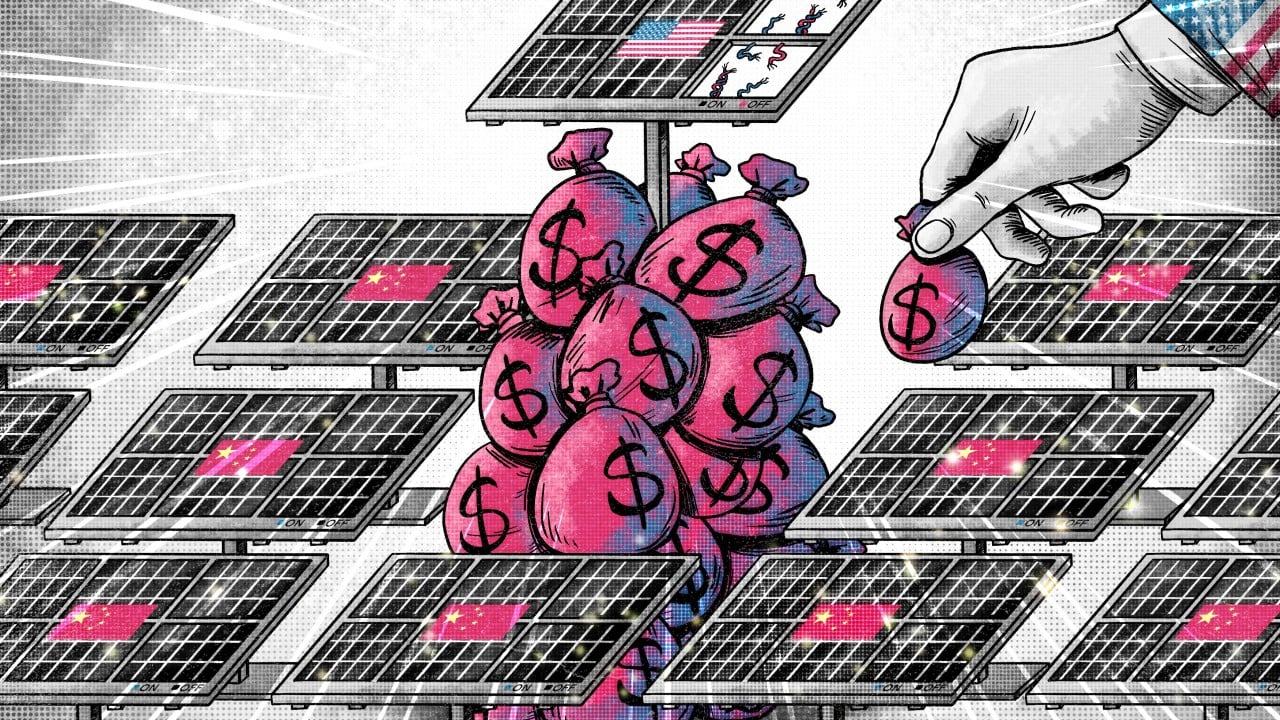The presidential race between Donald Trump and Kamala Harris comes at a time of rising geopolitical tensions on multiple fronts. In the 13th report of an in-depth series, we look at the battle between the US and China to secure their energy futures.
Advertisement
Claims that solar power subsidies lead to overcapacity have been a constant refrain in the US-China trade war over the past year. Last month, China returned serve.
The China Photovoltaic Industry Association said the United States had been “aggressively expanding its solar capacity through exclusive and discriminatory subsidy policies” in recent years, while at the same time accusing China of giving excessive subsidies to its own new energy sector – “demonstrating typical double standards”.
“These actions will lead to overcapacity in the US,” it warned, adding that would have an adverse impact on the industry’s healthy global development.
The world’s two largest economies are engaged in a battle to secure their solar energy futures, with the Inflation Reduction Act (IRA), introduced by the Biden administration in 2022 and offering billions in subsidies and tax credits, a big part of American efforts to level the playing field.
Advertisement
For the United States, one big uncertainty centres on next month’s presidential election.
Republican candidate Donald Trump has said he will “rescind all unspent [IRA] funds”. But he also said he was a “big fan” of solar in a debate with the Democratic nominee, Vice-President Kamala Harris, on September 10.

